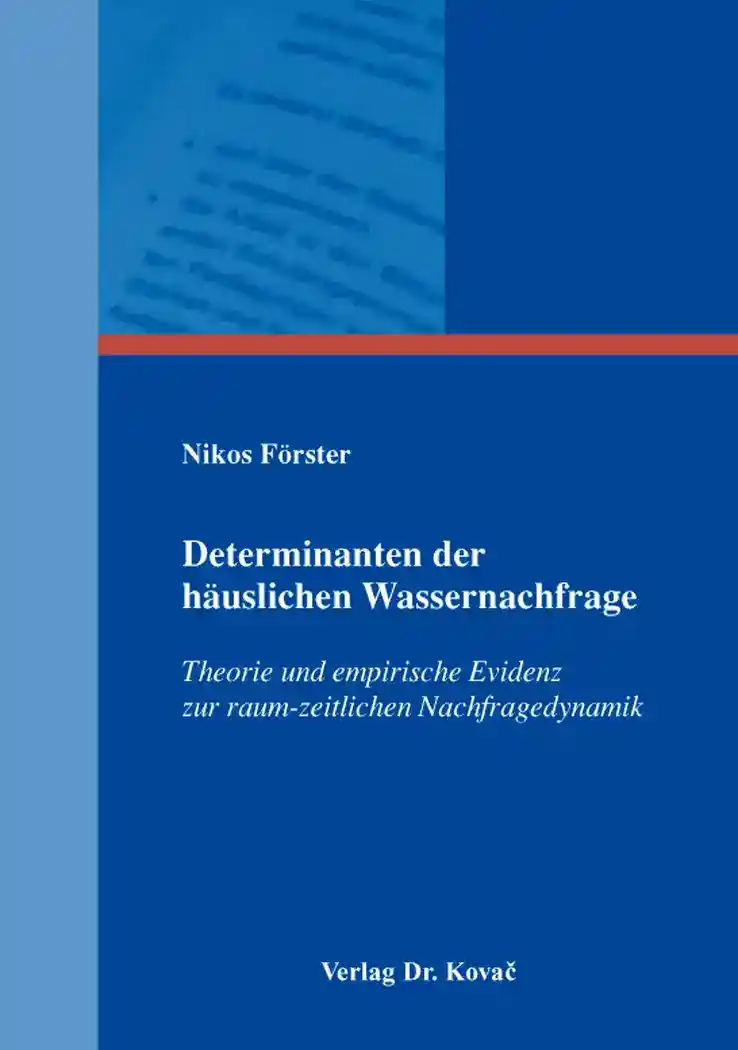Nikos FörsterDeterminanten der häuslichen Wassernachfrage
Theorie und empirische Evidenz zur raum-zeitlichen Nachfragedynamik
Studien zum Konsumentenverhalten, volume 61
Hamburg 2015, 426 pages
ISBN 978-3-8300-8306-1 (print)
ISBN 978-3-339-08306-7 (eBook)
About this book deutschenglish
As a result of rising populations and rapid economic growth an increasing number of regions face water shortages. Since the 1992 UN world conference on water in Dublin, it has been widely accepted among experts that not only bio-physical limits of water resources but also lacking arrangements between supply and demand are the main drivers of water scarcity. In the present paper, the key determinants of residential water demand, such as socio-demographic and climatological factors, income changes, and water pricing, are analyzed. The author uses regression models considering a large set of variables to estimate residential water demand functions for England & Wales, Poland, Norway, and Brazil. Furthermore, in the empirical section a meta-analysis of residential water demand is conducted based on 65 studies from 29 countries published between 1972 and 2012. Empirical findings suggest that households tend to pursue reductions in water consumption and hence cost minimization as, statistically, an increase in water prices leads to a decreasing water demand. However, in this context the applied tariff scheme turns out to be very important: if water demand is metered and the “User Pays Principle” is applied, water users will respond more sensitive to price signals as under a flat rate tariff. Overall, the predominantly positive sign of estimated income elasticity is in line with the demand theory, which states that water demand increases when income increases. Nevertheless, empirical results for Norway suggest that income effects are more complicated as formulated in the context of the neoclassical theory. In general, a higher level of wealth very likely increases the probability of adopting water efficient technologies, which in turn can lead to water savings. Besides water prices and income, other factors turned out to be key determinants of water demand. For the countries analyzed in this paper, age structure, population density, water quality, precipitation, temperature, and sprinkler bans for garden irrigation showed a statistically significant impact. The thesis concludes with the formulation of an improved water demand theory that overcomes the shortcomings of the neoclassical theory and achieves a better approximation of reality. This novel water demand theory is based on cost-benefit considerations, the acknowledgment of information deficits, satisficing, dynamics, and adaptive learning.Kontakt zum Autor
Keywords
HaushaltswassernutzungIWRMKonsumentenverhaltenLänderstudienNachfragedynamikÖkonometrieTrinkwasserUmweltökonomieUmweltpolitikWasserWassernachfrageWasserressourcenmanagementWater PricingYour book at Dr. Kovač Publishing House
We publish your doctoral thesis >>
